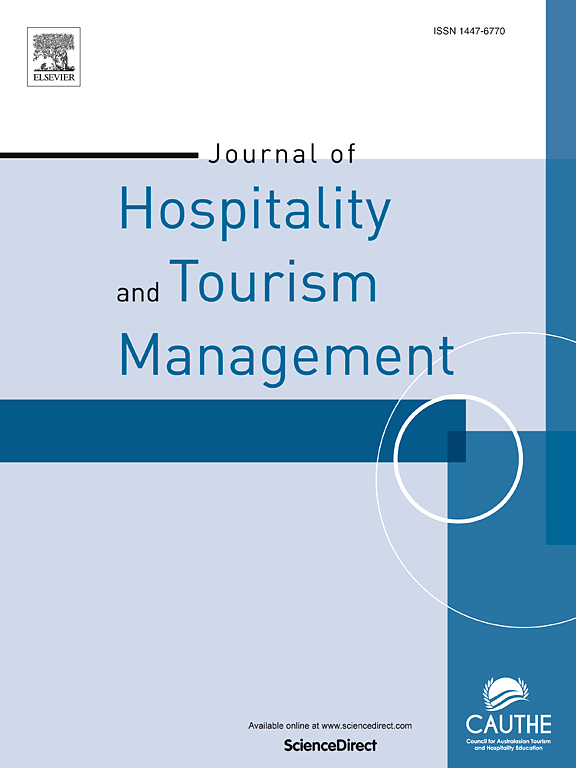加强旅游中的亲环境行为:基于细化因素的传播策略
IF 7.8
1区 管理学
Q1 HOSPITALITY, LEISURE, SPORT & TOURISM
引用次数: 0
摘要
环境传播战略对于减轻旅游业的负面环境影响至关重要,因为它们具有迅速发挥作用的潜力。然而,我们对这些策略如何起作用的理解往往受到限制,因为通常应用的理论并不能充分反映信息对个人态度和行为的影响程度。为了解决这一差距,本研究旨在探讨环境信息的不同组成部分如何影响游客参与促进亲环境行为的有说服力的信息(PEBs)的程度,使用细化可能性模型作为理论框架。研究结果表明,游客对环境行为的感知努力程度显著影响游客对环境信息的处理深度,进而影响游客感知说服力、情绪反应和参与环境行为意愿之间的关系。这项研究强调了塑造信息阐述的关键因素,并强调了感知努力在塑造对环境沟通的情感和说服力反应中的作用。本文章由计算机程序翻译,如有差异,请以英文原文为准。
Enhancing pro-environmental behaviors in tourism: Communication strategies rooted in elaboration factors
Environmental communication strategies are essential for mitigating the negative environmental impacts of tourism due to their potential for rapid effectiveness. However, our understanding of how these strategies work is often constrained because the theories typically applied do not adequately reflect how well messages influence individual attitudes and behaviors. To address this gap, this study aimed to explore how different components of environmental messages influence the extent to which tourists engage with persuasive messages that promote pro-environmental behaviors (PEBs), using the elaboration likelihood model as a theoretical framework. The findings reveal that the perceived effort required for PEBs significantly influences how deeply tourists process environmental messages, which in turn affects the relationships between perceived persuasiveness, emotional responses, and intentions to engage in PEBs. This research highlights key factors that shape message elaboration and underscores the role of perceived effort in shaping emotional and persuasive responses to environmental communication.
求助全文
通过发布文献求助,成功后即可免费获取论文全文。
去求助
来源期刊
CiteScore
13.30
自引率
8.40%
发文量
177
审稿时长
45 days
期刊介绍:
Journal Name: Journal of Hospitality and Tourism Management
Affiliation: Official journal of CAUTHE (Council for Australasian Tourism and Hospitality Education Inc.)
Scope:
Broad range of topics including:
Tourism and travel management
Leisure and recreation studies
Emerging field of event management
Content:
Contains both theoretical and applied research papers
Encourages submission of results of collaborative research between academia and industry.

 求助内容:
求助内容: 应助结果提醒方式:
应助结果提醒方式:


